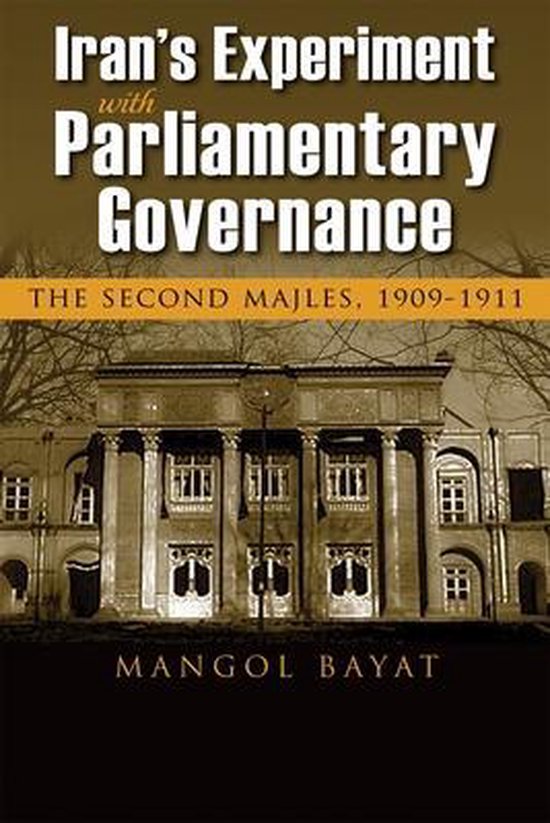
Modern Intellectual and Political History of the Middle East- Iran's Experiment with Parliamentary Governance
After the 1979 Islamic Revolution, constitutionalist leaders represented a diverse composite of beliefs, yet they all shared a similar vision of a new Iran, one that included far-reaching modernizing reforms. Mangol Bayat provides a much-needed detailed analysis of this historic episode.
For the past several decades, scholars have studied and written about the Iranian constitutional revolution with the 1979 Islamic Revolution as a subtext, obscuring the secularist trend that characterized its very nature. Constitutionalist leaders represented a diverse composite of beliefs, yet they all shared a similar vision of a new Iran, one that included far-reaching modernizing reforms and concepts rooted in the European Enlightenment. The second national assembly (majles), during its brief two-year term, aspired to legislate these reforms in one of the most important experiments in parliamentary governance.
Mangol Bayat provides a much-needed detailed analysis of this historic episode, examining the national and international actors, and the political climate that engendered one crisis after another, ultimately leading to its fateful end. Bayat highlights the radical transformation of old institutions and the innovation of new ones, and most importantly, shows how this term provided a reasonably successful model of parliament imposing its will on the executive power that was primarily composed of old-guard, elite leaders. At the same time, Bayat challenges the traditional perception among scholars that reform attempts failed due to sectarian politics and ideological differences.
For the past several decades, scholars have studied and written about the Iranian constitutional revolution with the 1979 Islamic Revolution as a subtext, obscuring the secularist trend that characterized its very nature. Constitutionalist leaders represented a diverse composite of beliefs, yet they all shared a similar vision of a new Iran, one that included far-reaching modernizing reforms and concepts rooted in the European Enlightenment. The second national assembly (majles), during its brief two-year term, aspired to legislate these reforms in one of the most important experiments in parliamentary governance.
Mangol Bayat provides a much-needed detailed analysis of this historic episode, examining the national and international actors, and the political climate that engendered one crisis after another, ultimately leading to its fateful end. Bayat highlights the radical transformation of old institutions and the innovation of new ones, and most importantly, shows how this term provided a reasonably successful model of parliament imposing its will on the executive power that was primarily composed of old-guard, elite leaders. At the same time, Bayat challenges the traditional perception among scholars that reform attempts failed due to sectarian politics and ideological differences.
| Auteur | | Mangol Bayat |
| Taal | | Engels |
| Type | | Paperback |
| Categorie | | Mens & Maatschappij |